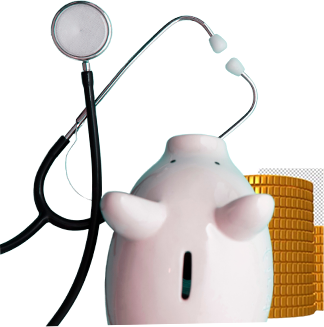PERSONALIZED DIET PLAN FROM
Best Dietician and Nutritionist for Autism

Contact Us
Autism Spectrum Disorder, popularly shortened to Autism, is a neurodevelopmental condition that affects the cognitive function and learning ability in children. This disorder can further hinder the development of learning and communication skills in children. Autistic individuals observe the world through a different lens, often picking up things that get left unnoticed by others. This also drives them to be able to focus deeply on areas of their interest. All these factors deeply affect their eating habits, leading to atypical eating patterns. As this can lead to malnutrition and deficiencies, it is essential to get help from a nutritionist for autism to compensate for selective food behaviours. A dietitian specialising in autism can assist you with the nutritional challenges that arise with symptoms related to autism and help curate a custom diet plan that supports their needs.

How Can a Nutritionist Help Autism Patients?
As autistic individuals often adopt atypical eating behaviours, it is essential to get help from a nutritionist so that they can curate a balanced individual diet that can help against malnutrition and deficiencies in the key nutrients. Let us have a further look at how autism nutritionists can help:
Food Deficiency Management – Autism Nutritionists will evaluate the current food habits of autistic individuals to learn their and understand their deficiencies and take further actions to address this.
Custom Diet Plan: After a proper assessment of the dietary intake of autistic individuals, nutritionists for Autism will make the appropriate inference and curate a custom meal plan for them to meet their nutritional needs.
Research-Based Solutions: Nutritionists rely highly on successful and reliable research strategies to help autistic individuals overcome their nutritional deficiencies and malnutrition and help them reach their dietary goals.
Structured Meal Time: After the employment of proper research and studies, nutritionists will come up with a structured diet plan that remains consistent but also fulfils the needs of autistic individuals.
Long-Term Consultation: Routine consultation with the nutritionist can help in the overall growth of autistic individuals and enhance their quality of life.
Key Nutritional Components for Autism
The neurodevelopmental condition can highly affect each autistic individual uniquely. This, in addition to their atypical food behaviours, can cause a heavy diversion from normal nutritional needs in autistic individuals. These deficiencies can further cause fatigue and digestive problems and lead to an array of health issues. Let us have a look at the nutritional conditions to be accomplished for autistic individuals:
Fiber Intake: Fiber intake is essential in maintaining gut health and in handling constipation, which arises from irregular food habits found in individuals with autism. This can be avoided by the consumption of whole grains, fruits, and vegetables; foods rich in fiber.
Vitamins and Minerals: The common nutrient deficiencies found in autistic individuals are vitamins A, B6, B12, C, D, E, K, calcium, zinc, and iron. They should make sure to eat foods that supplement these deficiencies.
Omega-3 Fatty Acids: Fatty acids are important in the development and function of the brain. These foods play a primary role in improving the symptoms of autism, such as hyperfixation, hyperactivity, irritability and aggression.
Magnesium: Consumption of magnesium-rich foods such as leafy vegetables, nuts and seeds helps in improving sleep quality, reducing anxiety, and bringing a sense of calmness in individuals with autism.
Probiotics: Probiotics help in maintaining a healthy gut, which further impacts the body’s immune system. Foods such as curd and yoghurt are good sources of probiotics that can help autistic individuals consume enough limits of probiotics.


Foods That Can Impact Autism Health Negatively
We already covered foods that can help autistic individuals. Now let us look at foods that can negatively impact autistic individuals and foods that autistic individuals should completely remove from their dietary roster:
Sugary Foods and Beverages: Sugar is generally considered to be bad for health. When it comes to autistic individuals, sugar spikes can lead to mood swings and behavioural issues such as hyperactivity.
Processes Foods: Processed foods containing additives, preservatives, and components such as MSG can cause a hormonal imbalance in autistic individuals, causing them to be more aggressive.
Diary (casein): Consuming casein, a component present in dairy products, can cause digestive problems and hormonal imbalances in autistic individuals. This component can further extensively prolong autistic behaviours.
Gluten: Autistic individuals who are gluten-sensitive can be affected by it badly. They may worsen their cognitive and social development due to the influence of gluten.
Caffeine: caffeine impacts sleep and in the case of autistic individuals, the lack of sleep can heighten their anxiety and cause unmanageable restlessness.
Recommended Foods for Autism
Eating particular foods can help autistic individuals get relief from extreme symptoms of autism. Let us have a look at those particular foods:
Fruits and vegetables: Fresh fruits and vegetables are packed with essential nutrients, vitamins, minerals, and antioxidants. They can help boost overall health in autistic individuals.
Whole Grains: Whole grains such as oats, brown rice, and quinoa are a good source of carbohydrates. These provide ample and steady amounts of energy as well as support the overall digestion process.
Lean Proteins: Lean proteins such as chicken and eggs help in muscle growth as well as in overall health. These foods can help provide ample and steady energy throughout the day while also helping stabilize blood sugar.
Root Vegetables: Root vegetables such as potatoes, carrots, and beetroots work towards cognitive function as well as overall health. They contain essential vitamins, minerals, and antioxidants, as well as ample amounts of fibre.
Magnesium-Rich Foods: Magnesium is an essential component required for the nervous system and its health. They can help in the reduction of anxiety and irritability and help with sleep problems when it comes to autistic individuals.


Common Diet Plans for Autism
To maintain the overall health of autistic individuals, nutritionists suggest simple and effective meal plans curated using ingredients that are available with ease. Let us look at some common diet plans for autism:
Probiotic-Rich Diet: A probiotic-rich diet can help cease and manage digestive problems faced by autistic individuals. Foods such as yoghurt can efficiently help in the improvement of gut health.
Mediterranean Diet: A Mediterranean diet can help autistic individuals improve their brain health, reduce inflammation issues and heighten good moods. This diet comprises fruits, vegetables, proteins, and healthy fats.
Ketogenic Diet: A ketogenic diet is especially helpful in the case of autistic individuals who are prone to epileptic seizures. Healthy fats in this diet can help reduce seizures, improve brain function, and induce a calming effect in autistic individuals.
Anti-inflammatory Diet: An anti-inflammatory diet helps reduce inflammation and brain function and improve cognitive function in autistic individuals. Through omega-3-rich foods and leafy green vegetables, an anti-inflammatory diet helps in the emotional and cognitive development of autistic individuals.
Feingold Diet: A Feingold diet eliminates artificial additives such as colours, flavors, and preservatives from the diet. Cutting off these elements can help in diminishing behavioural issues associated with autism.
Why Choose QUA Nutrition for Autism?
At Qua Nutrition, we offer personalized nutrition plans specifically created to support individuals with autism, backed by scientific expertise. Our team of well-experienced nutritionists and dietitians for autism understands the unique dietary needs of individuals on the autism spectrum and we are committed to crafting tailored meal plans to help the development and well-being of people with autism. With a deep understanding of the challenges faced by individuals with autism, we provide customized solutions that address sensory sensitivities, gut health, and behavioural patterns. Our approach goes beyond just nutrition, emphasizing the importance of balanced meals, hydration, and overall health.
At Qua Nutrition, we prioritize a personal approach, ensuring that each plan is suited to the individual’s specific requirements. Contact us at QUA Nutrition today to receive a nutrition plan that can make a real difference for you or your loved one.

Q: What is the role of a nutritionist for autism?
A: A nutritionist for autism helps create customized meal plans to address unique dietary needs, manage deficiencies, and improve overall health and well-being for individuals on the autism spectrum.
Q: What are the common nutritional challenges for individuals with autism?
A: Autistic individuals often face atypical eating behaviours, leading to food deficiencies, poor gut health, and digestive issues. A nutritionist can help manage these challenges with personalized meal plans.
Q: What foods are recommended for individuals with autism?
A: Recommended foods include fresh fruits and vegetables, whole grains, lean proteins, root vegetables, and magnesium-rich foods to support cognitive function and overall health, and reduce symptoms of autism.
Q: What foods should individuals with autism avoid?
A: Foods to avoid include sugary items, processed foods, dairy (casein), gluten, and caffeine, as they can negatively impact behaviour, digestion, and overall health in autistic individuals.
Q: How can QUA Nutrition help with autism nutrition?
A: QUA Nutrition offers personalized, research-based meal plans tailored to the unique needs of individuals with autism, focusing on nutrition, gut health, and managing behavioural challenges to improve overall well-being.


